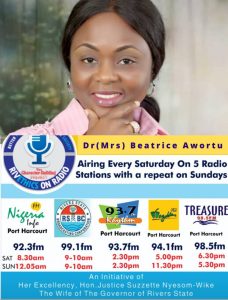
Our distinguished Rivers people, welcome to another episode of RivEthics on Radio, our character-building weekend show. Please remember that Education is a human right, a public good and a public responsibility. This episode is in commemoration of the United Nations International Day of Education, which came up yesterday, January 24.
Huge success has been achieved in the global education agenda. Even in our country, Nigeria and our Rivers State, substantial awareness has been created for school age children to avoid leaving anyone behind in the dynamic education space that constantly calls for more resources and commitment.
The successes so far recorded notwithstanding, the education sector is wrestling with mammoth challenges worldwide. Among these are the decline in the quality and standards of education, the failure to factor the work place’s skills requirements into learning processes, the widening knowledge gap between students in technically advanced societies and their counterparts in developing countries, the danger and the obstacles that learning faces in conflict zones, the growing incidence of bullying in schools, and the declining esteem of the teaching profession.
The significance of the deficits in education outcome becomes obvious when viewed alongside the spiralling population crisis. A study shows that by 2030, there will be 1.5 billion school-age children in low- and middle-income countries. If the trend continues, over 50 percent—880 million children—will not have the skills they need to be productive members of society. Countries with rapidly growing youth populations, especially the low-income countries in Sub-Saharan Africa and the Middle East, will not be on track to acquire the skills they need to succeed in the workplace of 2030. Nigeria ranks highest among the countries in the said regions with the fastest growing youth population and happens to be poorest country.
The choices that education stakeholders make have direct impact on various social groups, particularly, disadvantaged groups like rural communities, the urban poor, persons with disabilities, and women. As regards the last category, it is significant to note that nearly two-thirds of all the illiterate adults in the world are female, the majority of whom are in under-developed countries.
Choice also becomes critical as the education sector struggles with how to elevate the status of the teaching profession, recruit competent and highly motivated teachers, and expose teachers to innovative teaching techniques.
Let us pay close attention as our guest speaker takes us through the topic. She is Dr. Beatrice E Awortu, Associate Professor. Department of History and Diplomatic Studies, Ignatius Ajuru University of Education, Port Harcourt
Our wonderful Rivers People, please remember to always let your manners speak for you.
God bless and keep you and your families and God bless Rivers State.
